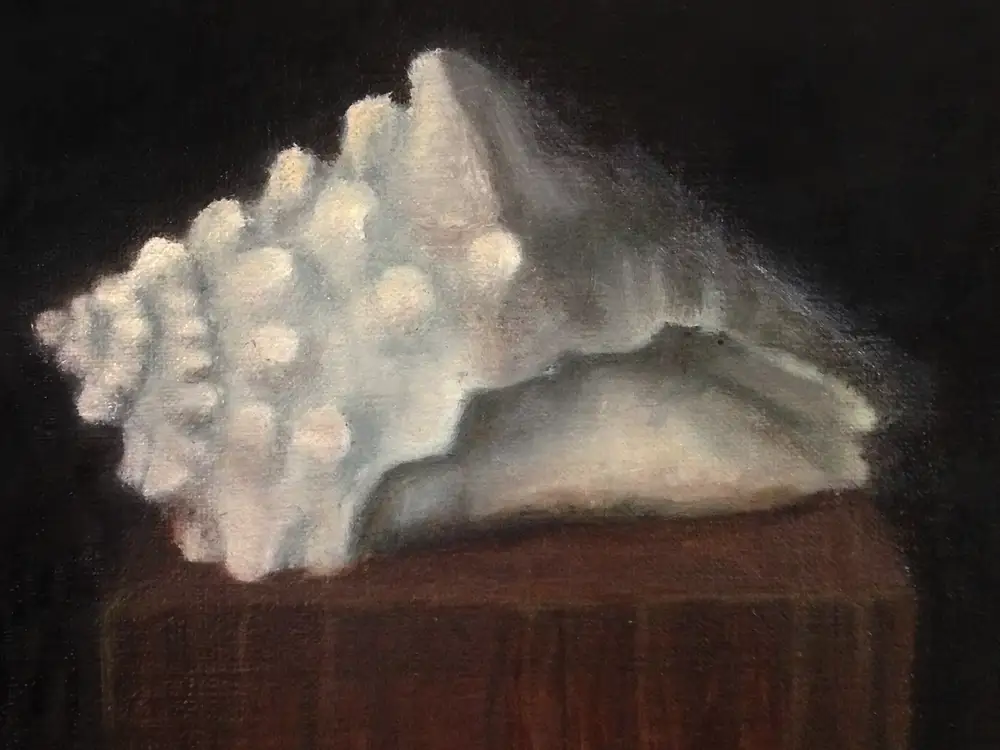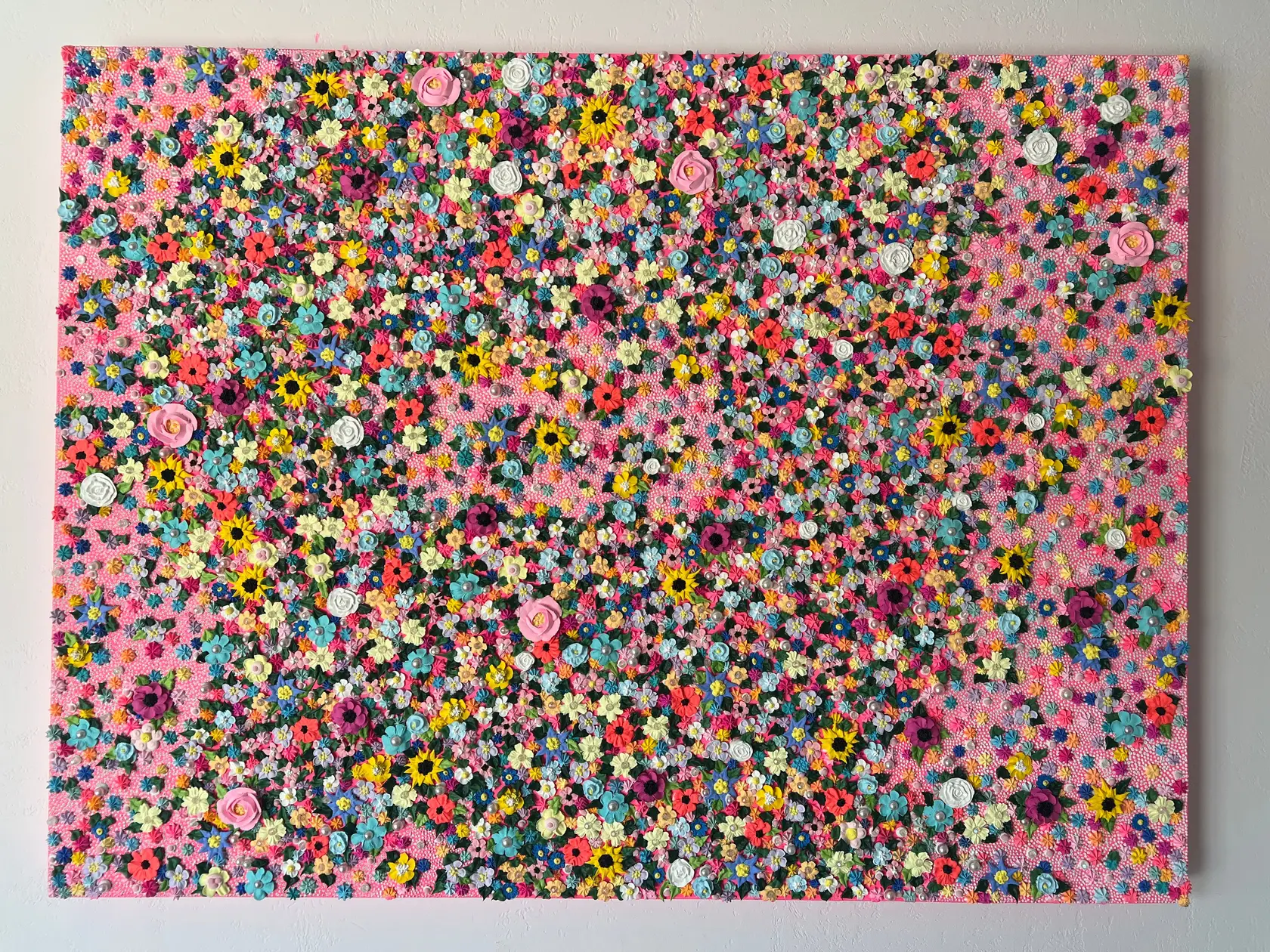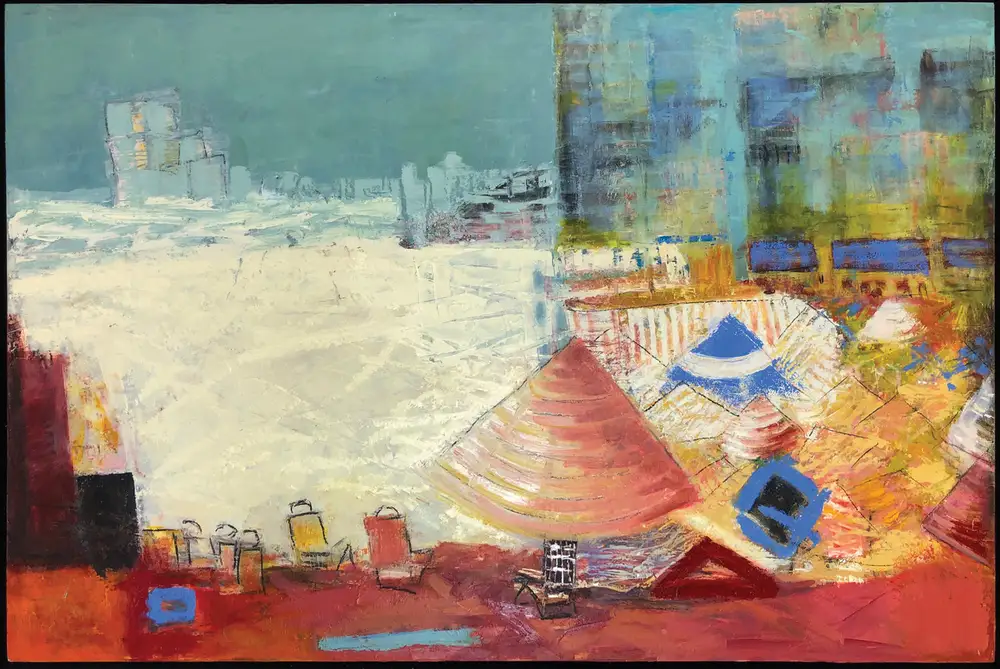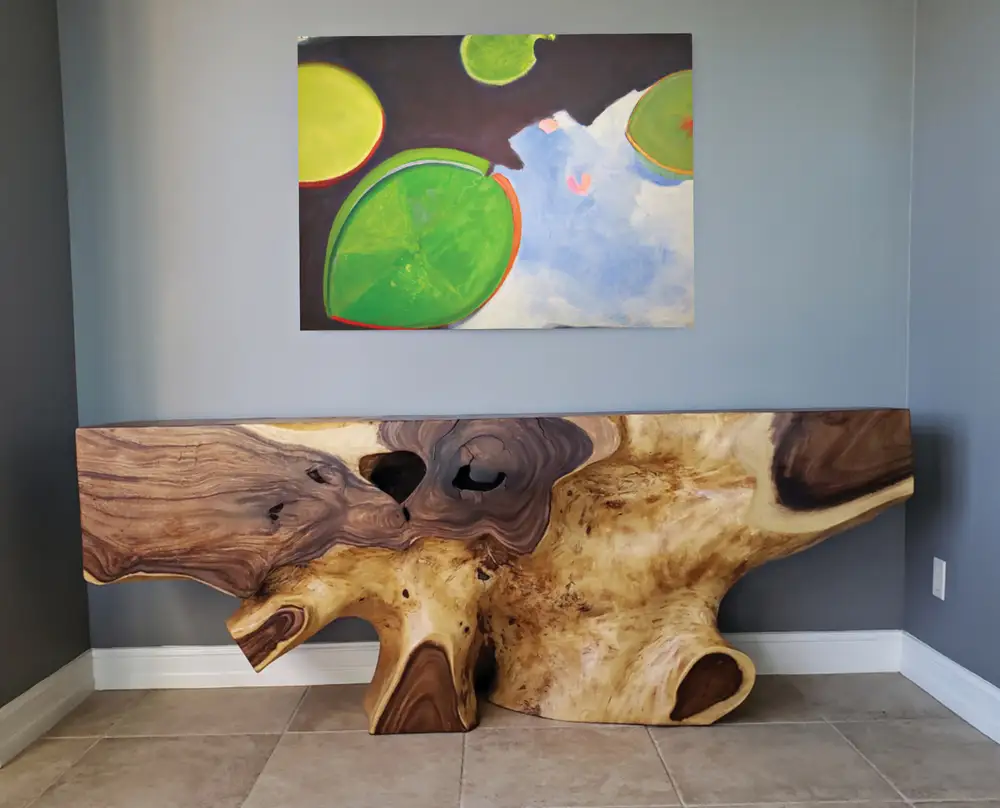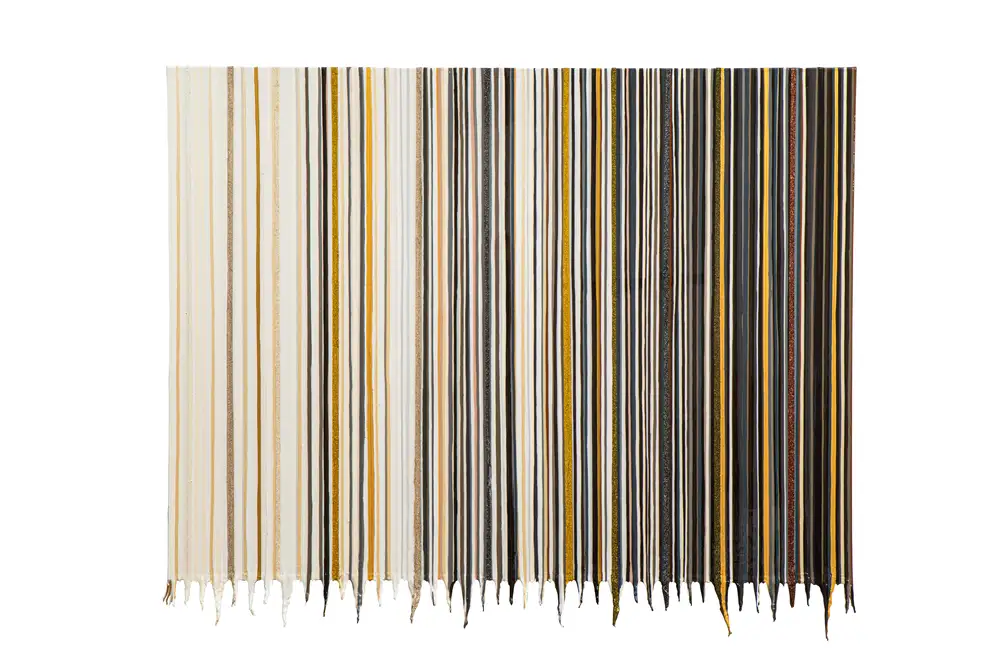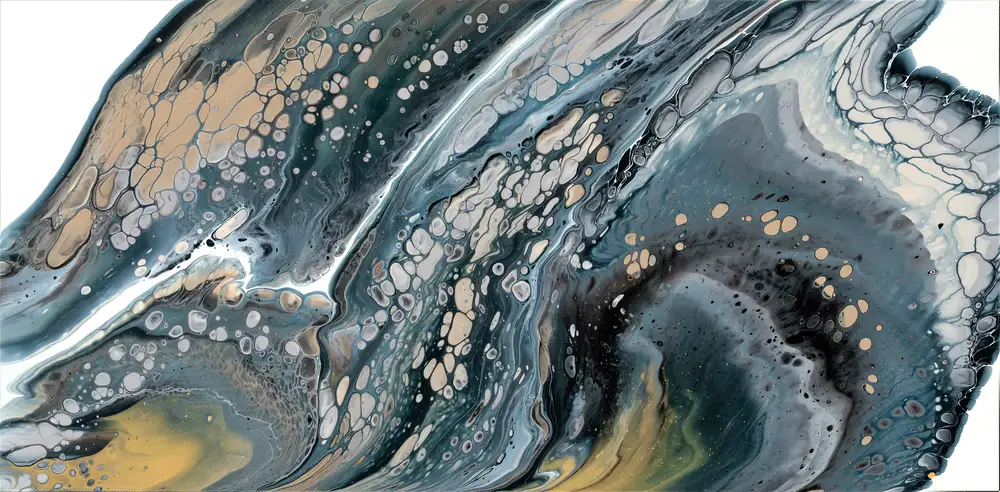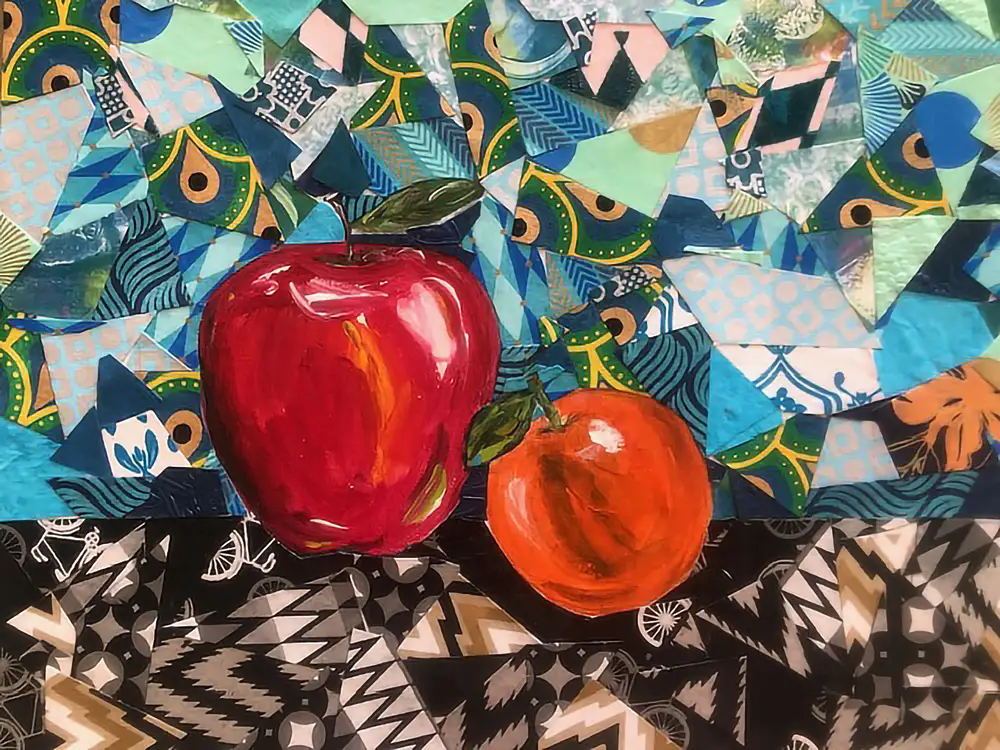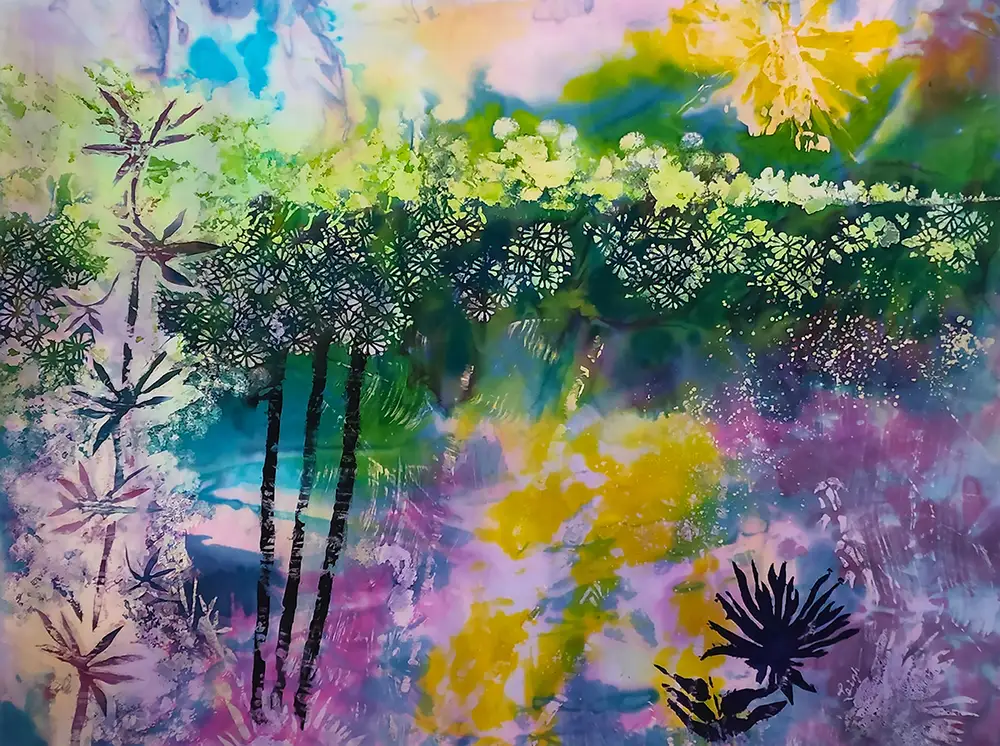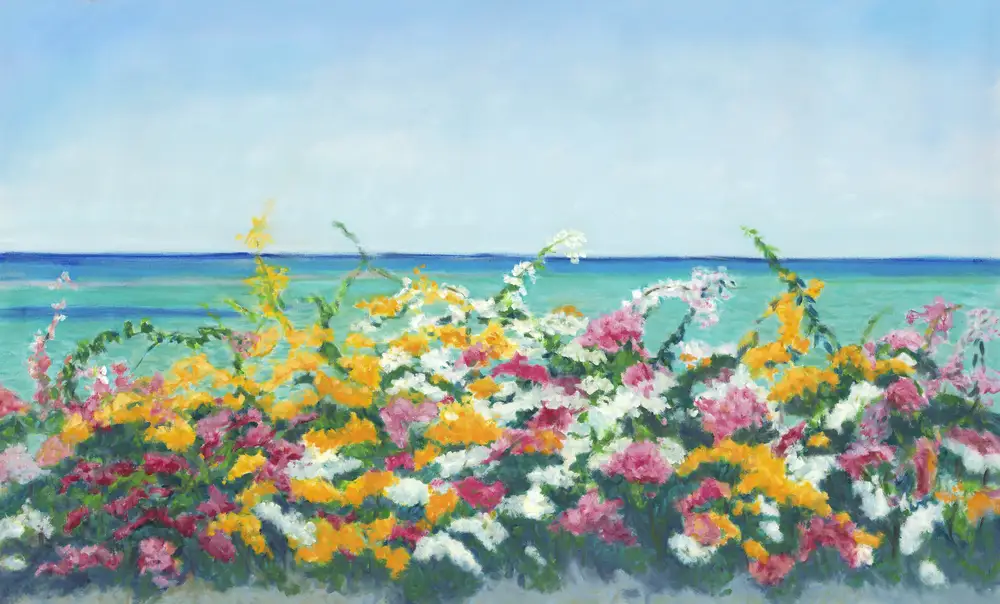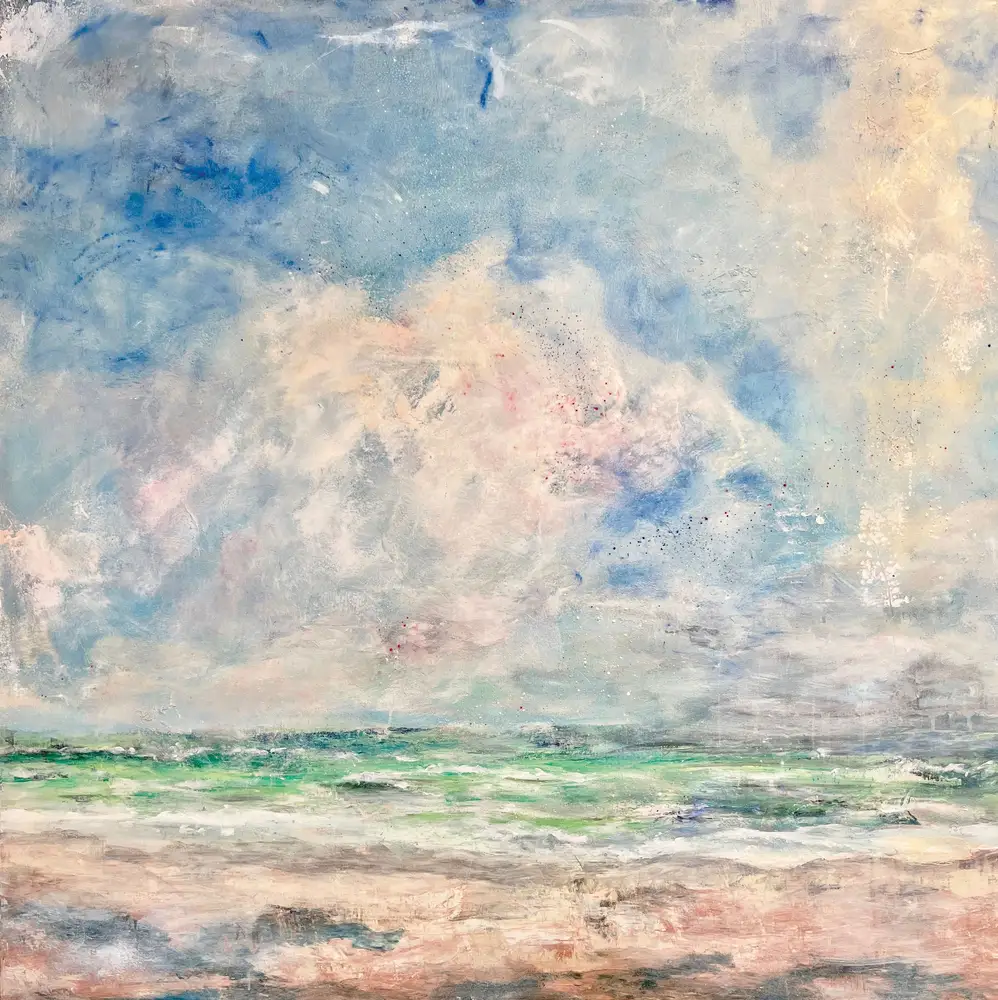Color: Key Art Element
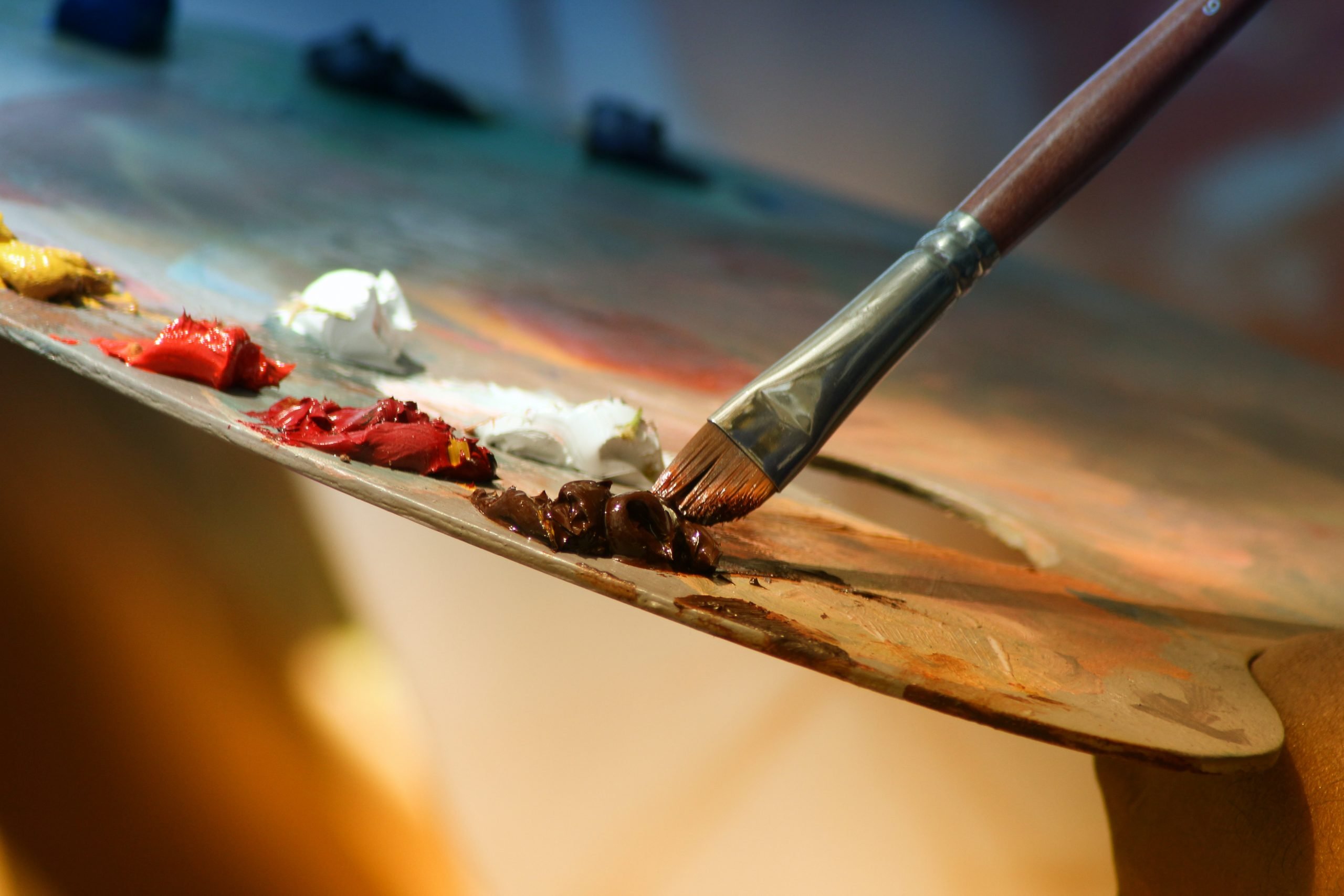
Southwest Florida art One of the key elements of art is color. Color can tell you a lot about a work of art and the artist who created it. It is used not only for aesthetics, but also to create mood and/or to express or provoke different emotions in those viewing the piece. Read on to learn more about color in art.
To see color, light must be present. Each light wave has a specific color, which either is absorbed by or reflected off of an object when light shines on it. Those colors are perceptible when the light waves strike an object and then are reflected back to our eyes. All light waves contain color in the form of electromagnetic waves. These waves spread out from light sources; and different wavelengths result in different colors. The longest wavelength of light that humans can see is perceived as the color red, while the shortest wavelength is visible as the color violet.
In the visual arts, the attributes of color include hue, value, and intensity . Hue refers to the color itself, each one distinguishable from the others, as red, blue, yellow, etc. Value refers to the brightness of that hue, such that it can be distinguished as a light color vs. a dark, across the range from white to black. Intensity, sometimes called chroma or saturation, refers to the strength of a color that is distinguished in terms of brightness or dullness.
The color wheel, also known as the color circle, is a chart used to understand the relationship between different colors. It is comprised of primary, secondary, and tertiary color groups. The color wheel is a visual representation that shows each primary color equidistant from one another, with “bridges” between them via the secondary and tertiary colors.
Southwest Florida art The primary colors are the most basic ones on the color wheel; they are red, yellow, and blue. These hues are the only three primary colors. They are the most pure of all the colors and cannot be made by mixing other hues. That said, the three primary colors can be mixed or blended to create any other color on the color wheel. Secondary colors on the color wheel include orange, green, and violet (also called purple). These colors can be created by mixing equal parts of any two primary colors. For example, mixing equal parts of red and yellow results in the color orange. There are six tertiary colors on the color wheel, created by mixing equal parts of a primary color with a secondary color, e.g., red-violet, red-orange, etc.
The Naples Art District boasts the largest concentration of working artists in Southwest Florida. It is home to over 70 visual artists, who maintain studios and galleries there. The Naples Art District (NAD) gives professional artists a place to share their artistic talents with each other and with the general public. Contact NAD any time for more information; and make sure to check out the calendar of events and list of classes available if you are interested in exploring the fine arts in greater depth with NAD member artists.
